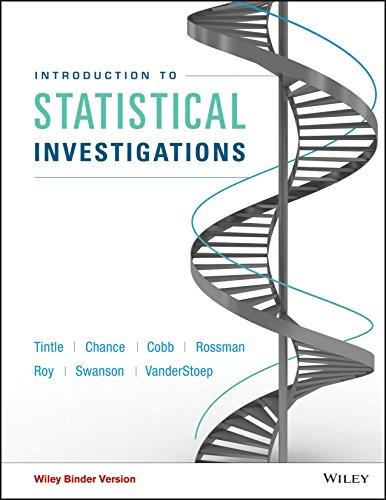Reconsider the previous three exercises. Now consider only the results for the nicotine lozenge, not for the
Question:
Reconsider the previous three exercises. Now consider only the results for the nicotine lozenge, not for the placebo.
a. Determine a 95% confidence interval for the probability that a smoker who uses a nicotine lozenge will successfully abstain from smoking for 52 weeks.
b. Based on this confidence interval, would you conclude that a smoker has a very good chance of successfully quitting if he/she uses a nicotine lozenge? Explain your answer.
Data from previous three exercise
At the end of the 52-week study, 17.9% of those in the nicotine group had successfully abstained from smoking, compared to 9.6% of those in the placebo group.
A study conducted in 2002 by Shiff man, Dressler, Hajeh, and Gilburt investigated whether a nicotine lozenge is helpful for smokers trying to quit smoking. The researchers recruited smokers who were interested in quitting through advertisements near four sites in the United Kingdom and 11 sites in the United States. Those smokers who met the screening qualifications were randomly assigned to one of two groups: One group received nicotine lozenges and the other group received placebo lozenges. The subjects were compared on various background variables at the beginning of the study, and at the end of the study they were compared on whether or not they successfully abstained from smoking. Of the 459 subjects in the nicotine group, 42.9% were male. Of the 458 subjects in the placebo group, 40.2% were male.
Step by Step Answer:

Introduction To Statistical Investigations
ISBN: 9781118172148
1st Edition
Authors: Beth L.Chance, George W.Cobb, Allan J.Rossman Nathan Tintle, Todd Swanson Soma Roy





